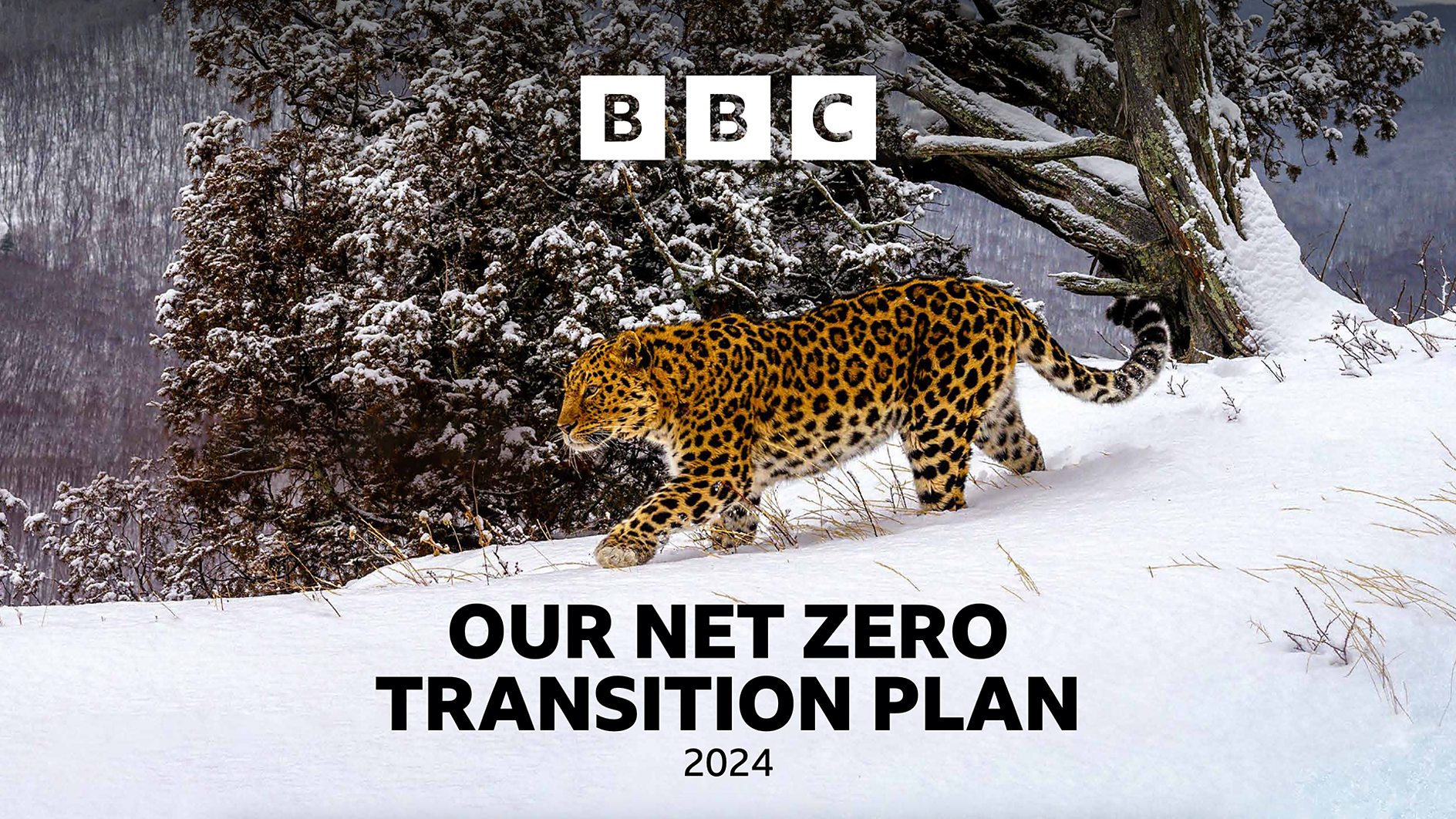BBC publishes Net Zero Transition Plan

The BBC has published its first Climate Transition Plan, detailing how it intends to be Net Zero by 2050. This forms part of the Corporation’s commitment to building a sustainable BBC and wider media industry.
The BBC has been making significant progress towards its science-based targets, aligning a commitment to world-renowned natural history programming with ambitious and tangible actions off-screen.
From reducing emissions on acclaimed drama Blue Lights by replacing diesel fuel with HVO in generators and production trucks, to replacing refrigeration chillers and gas-fired boilers with heat pumps in its offices, the BBC is committed to driving decarbonisation across the BBC Group.
Its first Transition Plan, developed in line with the Transition Plan Taskforce (TPT) Disclosure Framework, sets out the BBC’s Ambition, Action and Accountability in reaching Net Zero, including:
- Reducing, optimising and innovating its energy to low-carbon solutions;
- Developing the skills and competencies across the business to drive action within operations, editorial and content production teams, and;
- Playing an important role in contributing to the industry and economy-wide transition.
The BBC recognises that climate change and bio-diversity loss are real, serious and urgent, and this plan details the strategy it is putting in place to reduce its environmental impact.
Earlier this year, the globally-respected Science-Based Targets initiative (SBTi) approved the BBC’s Long-Term Targets to reduce all emissions by at least 90% by 2050, building on its existing Near-Term Targets to halve emissions by 2030.
This Transition Plan explains how the BBC will reach this target, and how Net Zero is one of the three pillars of the BBC’s Sustainability strategy, along with Nature Positive and People Positive.
These pillars underpin and shape the BBC’s climate ambitions for the future, aligned with the its mission to inform, educate and entertain all audiences, and the broadcaster’s Value for All strategy.
The BBC expects to update its Transition Plan and will continue to review its approach to ensure that it always meets the highest standards in sustainability practice, reporting and disclosures.
Danielle Mulder, Director of Sustainability, says: “This Transition Plan will support the BBC’s journey to Net Zero and is a hugely important milestone as we commit to a low-carbon future.
“Given the importance of climate change and biodiversity loss, we know our commitment to Net Zero matters to our staff, our suppliers and our audiences. We invite everyone we work with to get involved as we reduce our environmental impact.”
- Read the BBC’s Climate Transition Plan
- Find out more about the BBC’s sustainability strategy and plans.
The BBC, as a member of the Association for International Broadcasting, takes part in the AIB Sustainability working group that brings together AIB member organisations across the world to share intelligence and experience on sustainability issues across their whole businesses.
